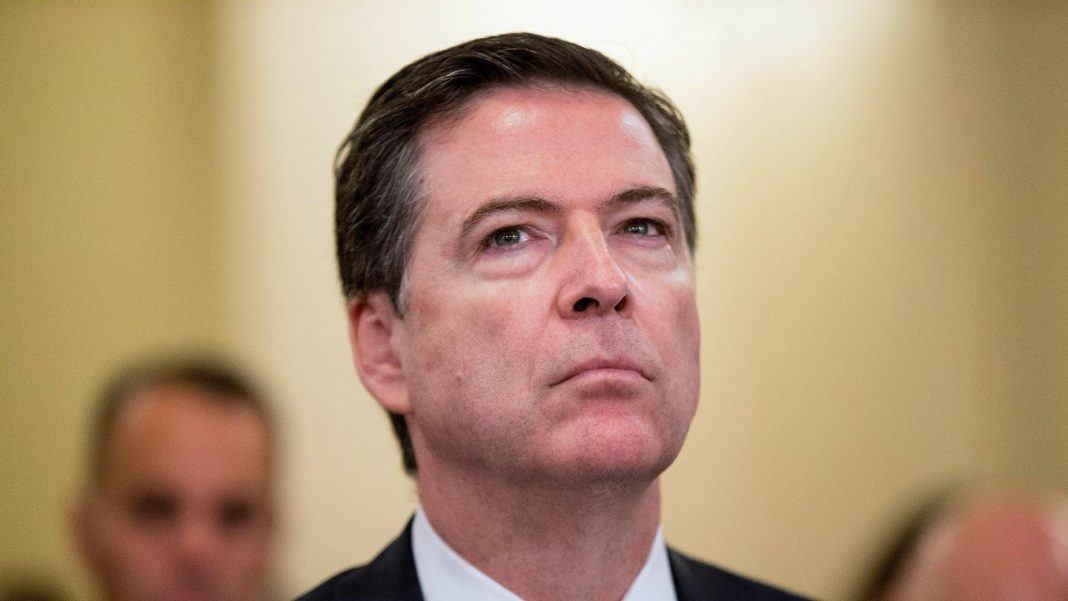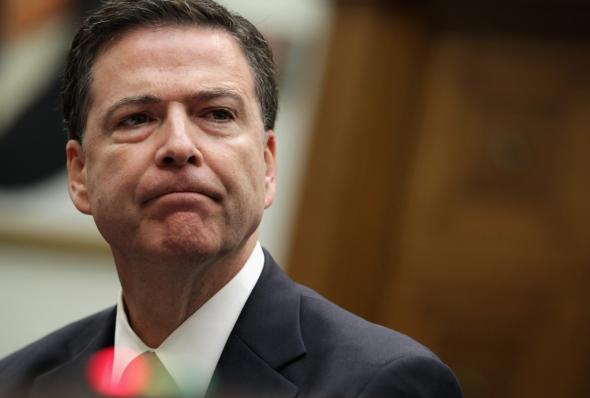
The moment that DC’s beltway crowd is anxiously awaiting is also the same moment that the White House staff is dreading; James Comey testifying before Congress on Thursday.
As expected, new reports from The New York Times, Reuters and The Washington Post are coming down like news drops from the sky. The Times reported on Wednesday that the day after President Donald Trump asked Comey to end his investigation into former national security Michael Flynn, the former FBI Director told Attorney General Jeff Sessions that he did not want to be left alone again with the president.
The Senate committee investigating Russian meddling in the 2016 presidential election on Wednesday released the written testimony of fired FBI Director James Comey. He is set to testify under oath Thursday in a public hearing before the Senate Select Committee on Intelligence.
You can read James Comey’s full testimony here.
Here are some key excerpts:
The president and I had dinner on Friday, January 27 at 6:30 p.m. in the Green Room at the White House. … It turned out to be just the two of us, seated at a small oval table in the center of the Green Room. Two Navy stewards waited on us, only entering the room to serve food and drinks.
The president began by asking me whether I wanted to stay on as FBI director, which I found strange because he had already told me twice in earlier conversations that he hoped I would stay, and I had assured him that I intended to. He said that lots of people wanted my job and, given the abuse I had taken during the previous year, he would understand if I wanted to walk away. …
I replied that I loved my work and intended to stay and serve out my 10-year term as director. And then, because the setup made me uneasy, I added that I was not “reliable” in the way politicians use that word, but he could always count on me to tell him the truth. I added that I was not on anybody’s side politically and could not be counted on in the traditional political sense, a stance I said was in his best interest as the president.
A few moments later, the president said, “I need loyalty, I expect loyalty.” I didn’t move, speak or change my facial expression in any way during the awkward silence that followed. We simply looked at each other in silence. The conversation then moved on …
Near the end of our dinner, the president returned to the subject of my job, saying he was very glad I wanted to stay, adding that he had heard great things about me from Jim Mattis, Jeff Sessions and many others. He then said, “I need loyalty.” I replied, “You will always get honesty from me.” He paused and then said, “That’s what I want, honest loyalty.” … As I wrote in the memo I created immediately after the dinner, it is possible we understood the phrase “honest loyalty” differently, but I decided it wouldn’t be productive to push it further. The term – honest loyalty – had helped end a very awkward conversation and my explanations had made clear what he should expect. …
—
On February 14, I went to the Oval Office for a scheduled counterterrorism briefing of the president. … The president signaled the end of the briefing by thanking the group and telling them all that he wanted to speak to me alone. … When the door by the grandfather clock closed, and we were alone, the president began by saying, “I want to talk about Mike Flynn.” Flynn had resigned the previous day. The president began by saying Flynn hadn’t done anything wrong in speaking with the Russians, but he had to let him go because he had misled the vice president. …
“He is a good guy and has been through a lot.” He repeated that Flynn hadn’t done anything wrong on his calls with the Russians, but had misled the vice Ppresident. He then said, “I hope you can see your way clear to letting this go, to letting Flynn go. He is a good guy. I hope you can let this go.” I replied only that “he is a good guy.” I did not say I would “let this go.”
—
On the morning of March 30, the president called me at the FBI. He described the Russia investigation as “a cloud” that was impairing his ability to act on behalf of the country. He said he had nothing to do with Russia, had not been involved with hookers in Russia and had always assumed he was being recorded when in Russia. He asked what we could do to “lift the cloud.” I responded that we were investigating the matter as quickly as we could, and that there would be great benefit, if we didn’t find anything, to our having done the work well. He agreed, but then re-emphasized the problems this was causing him. …
The president went on to say that if there were some “satellite” associates of his who did something wrong, it would be good to find that out, but that he hadn’t done anything wrong and hoped I would find a way to get it out that we weren’t investigating him. …
He finished by stressing “the cloud” that was interfering with his ability to make deals for the country and said he hoped I could find a way to get out that he wasn’t being investigated. I told him I would see what we could do, and that we would do our investigative work well and as quickly as we could.
—
On the morning of April 11, the president called me and asked what I had done about his request that I “get out” that he is not personally under investigation. I replied that I had passed his request to the acting deputy attorney general, but I had not heard back. He replied that “the cloud” was getting in the way of his ability to do his job. He said that perhaps he would have his people reach out to the acting deputy attorney general. I said that was the way his request should be handled. I said the White House counsel should contact the leadership of DOJ to make the request, which was the traditional channel.
He said he would do that and added, “Because I have been very loyal to you, very loyal; we had that thing you know.” I did not reply or ask him what he meant by “that thing.” I said only that the way to handle it was to have the White House counsel call the acting deputy attorney general. He said that was what he would do and the call ended.
That was the last time I spoke with President Trump.


